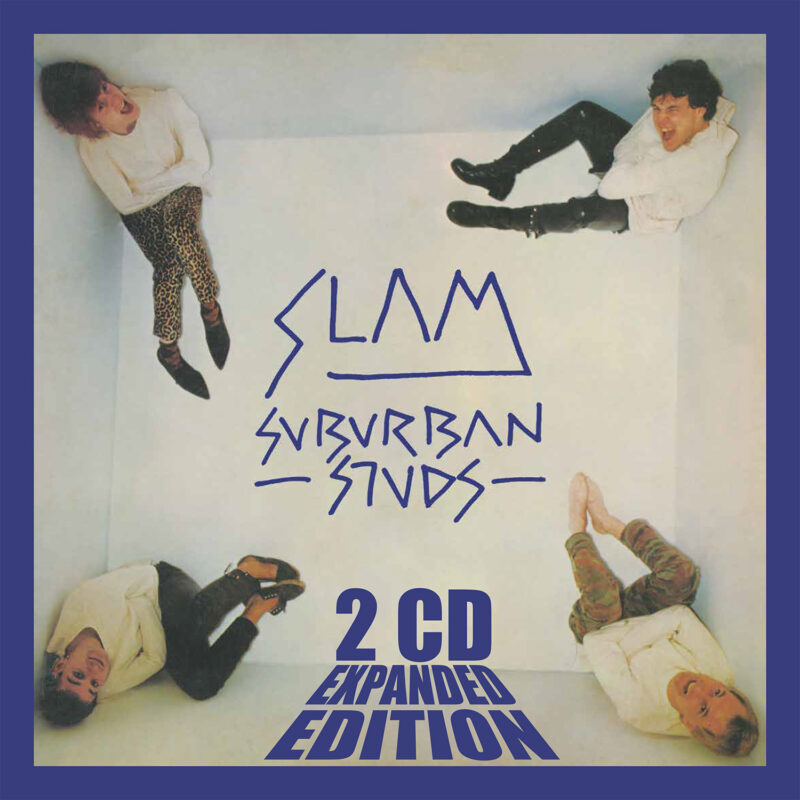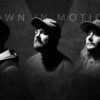A band who formed in 1976, the year The Damned were cited as having released the first British punk rock single. Following this, a host of artists took inspiration and released the likes of Never Mind The Bollocks, New Boots And Panties!!, Spiral Scratch, among many others from the UK and beyond. This time was a melting pot of talent, in a burgeoning scene that saw headlines taken by Sex Pistols, while the rest did the heavy lifting, with wordplay offered by Pete Shelley, as Buzzcocks opened for the Pistols in Manchester, in 1976.
This was also a year that Suburban Studs played support at London’s 100 Club, for Sex Pistols, on this occasion headlining above The Clash. While these former artists came from the metropolis of London and Manchester, we must not forget the Midlands, as Suburban Studs were born out of the former industrial heartland of Birmingham. Slam was their only album and saw another reissue for the Anagram Records label in 1996, this coincided with the ‘Holidays in the Sun’ punk festival in Blackpool that year. This second reissue has added another disc and features a further 6 tracks, including for the first time on CD, the four-track session the band recorded for John Peel, and 2 previously unreleased tracks.
The first disc comprises the band’s original album in its entirety, and the second disc features the original versions of the band’s singles, ’Questions’ and ‘No Faith’, along with those tracks from the John Peel session, original versions of which are on their debut album. This album begins with the band’s war-cry ’Suburban Studs’ and features what might be a pretty formulaic chord/beat combo, but when you consider this was written during what might be considered the embryonic time for punk, you realise this is where it started and anything that came after was following the piper. With a vocal displaying tones of Buzzcocks’ Pete Shelley, along with shades of Mick Jagger, it’s great to turn back those clocks and hear these sounds again.
We continue with ‘Dissatisfied’, a number which tells the tale of someone who is fed up with how they are being forced to live, such was the economic degradation in Britain, that the only way some saw of getting out was to be locked up. These were short sharp punk injections, as ‘(The) Rumble’ continues on the theme of running against the law, or “…jungle…” as vocalist Eddy Zipps called the situation. The solid back-line created by drummer Steve Poole and bassist Paul Morton, with cutting guitar offered by Keith Owen, proved this band were to be taken seriously. It’s pretty clear that society was in a state of decline, as ‘Resistor’ and the first of their 2 singles ‘I Hate School’, released in 1978, paints a picture of how the education sector was.
The album’s content speaks of teen-angst, displayed in the track ‘Razor Blades’, which considers teenage suicide, saying “…I was trying to find a way out of it, I didn’t want to know about the time you tried your suicide, I just wanted you to go, away…”, but it soon becomes clear that this is told tongue-in-cheek as they remind the listener that “…Razor Blades, were made for cutting hair…”, all told with a solid bass-line. Another track displaying the hormones of the teenager is ‘Throbbing Lust’, no explanation needed, although this time perhaps those raging feelings are being transferred to a teenage vampire, although as Zipps tells us “…imagination will get you in the end…”, enough said. A similarity is displayed in the band’s version of The Who’s ‘My Generation’, as their stable back-line acts as a suitable canvas for Zipp’s snarling delivery. It should be left to no doubt, that this album has certainly earned its place as “one of the most collectable Punk albums”.
Of those tracks that were demos for a proposed second album, I would have to say that rather than punk the band appears to have veered a little too close to glam-rock, but I do like ‘Sinkin’ Down’, a number which tells of how “…cocaine, you got a hold on me…” complete with the nervous energy displayed in the music and the Marc Bolan feel of ‘All That Jazz’, an artist who saw the birth of glam and I would rate as one of the better artists to perform in this genre, not forgetting David Bowie. As we progress through the following tracks, from this stage the band is beginning to lose the direction they displayed in 1977, which might have been why they didn’t proceed any further with this second album. Although a final note should made of the spectacular ‘Supernatural’, a number which punk or not, possesses all the stage and drama of a classic, although musically is perhaps a little untidy and could have done with further work.




